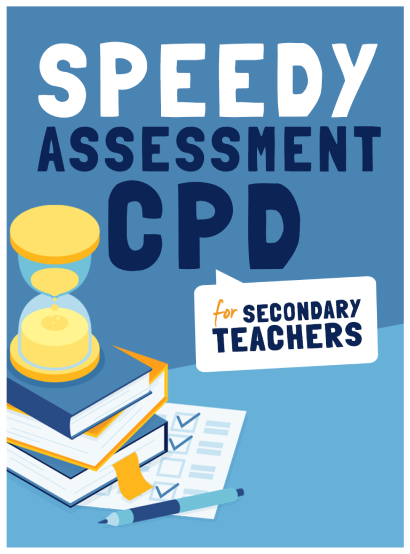GCSE Exam Results Day – Spare A Thought For The Teachers

It's not just students who are judged by exam results, and many teachers feel the strain of comparing theirs to colleagues' and other schools' achievements

This week the big story will be exam results. There will be pictures of jubilant students celebrating their A* grades and smiling headteachers basking in the reflected glory.
Sadly, there will also be teachers and leaders who do not feel like celebrating. Instead, they will be analysing the results and comparing themselves with their peers and colleagues, as well as thinking about the difficult conversations that lie ahead of them.
Dr Asha Patel is CEO of Innovating Minds, a social enterprise that works alongside schools to foster resiliency and reduce anxiety, offers some tips on handling the emotional rollercoaster of exam results.
How important are exams for teachers and students? There is a lot of uncertainty, apprehension and so much riding on the information in those brown envelopes. The exam results are immediate, tangible evidence of success or failure for students.
However, they have also come to be the benchmark for schools, an annual snapshot of how the school is performing and are taken very seriously by parents, local authorities and the government so there is considerable pressure on schools to achieve good results year on year.
In your experience of working with teachers, how do they react to disappointing grades? It’s not unusual for them to blame themselves and have irrational thoughts such as: ‘I’ve have failed my students,’ ‘I’ve let the faculty down,’ ‘I should have made the students work harder,’ and. ‘I’m not good enough as a teacher.’ While these thoughts are whirling round in their head teachers are not thinking rationally.
Everyone has a choice: they can give headroom to these thoughts and become disheartened and defeatist or they can see it as a challenge and take positive steps to banish their negativity.
What advice would you give to teachers? The first step is to realise that you are having negative thoughts. By focusing on them sooner rather than later you can take hold of them before they get stronger and dominate your mind. Irrational thoughts can get in the way of thinking logically so you must stop and refocus your mind. You need to shift from Emotional Mind to Wise Mind. This will let you make sensible decisions, relate to others better and work out and implement a plan to resolve your current problem.
Step two is to make sure that you don’t do things you will regret. Do not initiate meetings or write emails when you are in Emotional Mind. If you are tempted, write down what you intend to say and either get someone who is neutral to read it or leave it for a day or at least for several hours and read it again before you action it.
Step three is to make sure you are kind to yourself. Little treats and time outs matter. While you are comforting yourself, you are relaxing, lowering the emotional temperature and gradually you will be able to access the Wise Mind. Strategies such as baths, showers, listening to music, going for a walk, exercising, having a day out, engaging in a new activity can help. This is an experiment – not all strategies will work for you so find the ones that have a good effect.
Step four is to look at the big picture. It so easy to convince ourselves that we are failures, so let’s switch it around and use that energy to grow our mindsets by generating alternative thoughts and producing counter evidence. Why did you go into the teaching profession? Why do you teach in the way that you do? What impact have you had on the young people you have worked with?
Step five is to look to the future. Talk over your worries and concerns with someone you feel comfortable with and whom you can trust. Expressing how you feel can help you come to terms with your current situation and it can also help you to start thinking in positive terms about a plan to move forward.
Step six is to create your plan. You can write this down or keep it in your head. Writing it down and sharing it can help with accountability! Some find it productive and comforting to set SMART goals so they have signposts along the way to measure progress.
Teachers, middle leaders or member of the SLT have high pressure jobs and will always be in the public eye. Children, young people and junior staff will look up to you and expect you to be able to cope. When you are managing your own wellbeing and handling setbacks it is important to be open and honest. That way, others will learn how to develop resiliency and deal with the challenges that life sends their way.
Dr Asha Patel is CEO of Innovating Minds, a social enterprise that works alongside schools to foster resiliency and reduce anxiety. Follow her on Twitter at @LeenaAsha.











